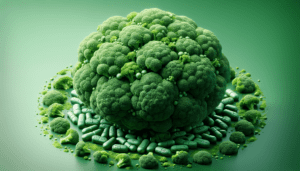Managing Metformin and Diet
For those managing diabetes with metformin, understanding how certain foods and medications can interact with the drug is essential for maintaining balanced blood glucose levels and overall health.
Impact of Contraceptive Pills
Contraceptive pills can influence how the body processes sugar, potentially necessitating a slight adjustment in the dosage of metformin if used concurrently. It’s crucial for individuals to consult with their healthcare provider if they are combining these medications to ensure proper management of blood sugar levels and to discuss any necessary modifications to their metformin regimen. For more information on the interaction between contraceptive pills and metformin, one can refer to the resources provided by the NHS.
Foods to Avoid with Metformin
When taking metformin, it’s important to be mindful of certain food interactions that could affect blood glucose control. Here are key dietary considerations:
- Simple and Refined Carbohydrates: These can cause rapid spikes in blood sugar levels. It is advisable to limit or avoid foods like white bread, white pasta, and sugary snacks such as chips, crackers, and cookies. For a comprehensive list of such foods, individuals can visit our page on foods to avoid while taking metformin.
- Saturated Fats: High intake of saturated fats can hinder the weight loss effects of metformin, making it recommended to consume these fats sparingly. Opt for lean protein sources like turkey, fish, and tofu to maintain a balanced diet.
- Trans Fats: Often present in baked goods and fast food, trans fats can elevate cholesterol levels and provoke inflammation. Avoiding these foods is recommended to optimize the effectiveness of metformin.
- Sodium: High sodium intake can exacerbate the risk of hypertension and cardiovascular complications, which is why limiting sodium-rich foods is crucial for those on metformin.
The following table summarizes foods to avoid or limit while on metformin:
| Food Category | Examples | Reason to Avoid |
|---|---|---|
| Simple Carbohydrates | White bread, white pasta, sugary snacks | Can spike blood sugar levels |
| Saturated Fats | High-fat meats, full-fat dairy | May negate metformin’s weight loss effects |
| Trans Fats | Baked goods, fast food | Can raise cholesterol and cause inflammation |
| Sodium | Processed foods, canned soups | Increases risk of hypertension and heart problems |
By being aware of these metformin and food interactions, individuals can make informed choices about their diet, enhancing the drug’s efficacy and supporting their health objectives.
Nutritional Considerations
While taking metformin, certain nutritional considerations must be taken into account to ensure the medication functions effectively. Understanding the dynamics between metformin and food interactions can help manage blood glucose levels more efficiently.
Simple Carbohydrates Caution
Simple carbohydrates, particularly refined ones, can cause a rapid spike in blood sugar levels. Metformin’s primary purpose is to help limit these surges in glucose, so it’s important to be cautious about consuming foods that could undermine its effects. This includes items like white bread, white pasta, and most chips, crackers, and cookies. These foods are quickly absorbed into the bloodstream and can lead to blood glucose fluctuations (Found).
To help maintain stable blood sugar levels, opt for complex carbohydrates with a lower glycemic index. These are absorbed more slowly and include foods such as whole grains, legumes, and vegetables. For more information on specific foods to avoid while taking metformin, visit our dedicated resource page.
Managing Saturated Fats
Saturated fats can negate some of the benefits of metformin, particularly its potential weight management effects. It’s advised to consume these fats in moderation and place emphasis on lean proteins that can offer more health benefits without the added risk. Suitable sources of lean protein include turkey, fish, and tofu, which can provide the protein needed without the high levels of saturated fats (Found).
Incorporating lean proteins into your diet can also help with satiety, making it easier to manage portion sizes and overall caloric intake. This is crucial for those using metformin as part of a weight-loss strategy.
Steering Clear of Trans Fats
Trans fats are particularly harmful to one’s health, raising cholesterol levels and contributing to inflammation. These fats are commonly found in baked goods, fast food, and many processed snacks. For individuals on metformin, avoiding trans fats is vital as they can interfere with the drug’s capacity to control blood sugar and contribute to cardiovascular health issues (Found).
It’s recommended to read labels carefully and opt for foods that are free from hydrogenated or partially hydrogenated oils, which are sources of trans fats. Instead, focus on foods rich in unsaturated fats, such as avocados, nuts, and olive oil, which can support heart health and overall well-being.
By making informed nutritional choices, those taking metformin can better manage their condition and work towards achieving their health goals. Remember, balancing your diet with a variety of nutrients while minimizing the intake of simple carbohydrates, saturated fats, and trans fats can go a long way in supporting the efficacy of metformin.
Dietary Guidelines for Metformin Users
For individuals managing diabetes with metformin, dietary choices can significantly impact the effectiveness of the medication and overall health. Understanding metformin and food interactions is vital.
Sodium Intake Awareness
Excessive sodium intake is a concern for anyone, but it’s especially important for metformin users to be cautious. High sodium intake can elevate the risk of hypertension and cardiovascular issues, which are already of concern for those with diabetes. The American Diabetes Association (ADA) suggests a limit of 2,300 milligrams of sodium per day, which aligns with the general recommendations for healthy adults (Found).
| Daily Sodium Intake | Recommendation |
|---|---|
| Maximum | 2,300 mg |
To manage sodium intake, consider:
- Choosing fresh vegetables over canned ones.
- Opting for unprocessed meats rather than cured or deli meats.
- Preparing meals at home to control the amount of added salt.
For more guidance on foods to avoid while taking metformin, including those high in sodium, visit the linked article.
Importance of Balanced Diet
In conjunction with taking metformin, adhering to a balanced diet is essential for maintaining blood glucose levels within target ranges. A balanced diet should include a variety of nutrients and food groups to support overall health.
Elements of a balanced diet for metformin users include:
- A variety of fruits and vegetables for vitamins and minerals.
- Whole grains for sustained energy and fiber.
- Lean proteins for muscle maintenance and satiety.
- Healthy fats for hormonal balance and cellular health.
K Health emphasizes the importance of such a diet along with lifestyle modifications to support diabetes management.
Alcohol and Metformin Interaction
Alcohol consumption requires careful consideration when taking metformin. While moderate alcohol intake has been shown to have a protective effect against type 2 diabetes, excessive consumption may lead to hyperglycemia (Diabetes Care).
| Alcohol Intake | Effect |
|---|---|
| Up to 1 drink/day | Potential protective effect |
| >3 drinks/day (men), >2 drinks/day (women) | Risk of hyperglycemia |
Individuals taking metformin should be mindful of their alcohol consumption and aim to stay within the moderate range to minimize the risk of adverse effects. It’s also important to note that alcohol can increase the risk of lactic acidosis, a rare but serious side effect of metformin.
For those who choose to consume alcohol, it is advised to do so with food to reduce the impact on blood sugar levels. Always consult with a healthcare provider for personalized advice on managing alcohol intake while using metformin. Additionally, for those seeking non-pharmacological ways to control blood glucose, consider exploring tips for straightening curly hair.
Remember, diet and medication go hand in hand in managing diabetes effectively. By staying informed and making conscious food choices, metformin users can support their medication’s efficacy and maintain better control over their blood glucose levels.
Supporting Blood Glucose Control
Managing blood glucose levels is a critical aspect of diabetes care. For those prescribed metformin, understanding how diet can support medication efficacy is key. This section discusses dietary approaches to complement the blood glucose-lowering effects of metformin.
Fiber Intake Strategy
Dietary fiber plays a pivotal role in maintaining stable blood sugar levels and supporting overall health. According to the NCBI Bookshelf, nutrient-dense carbohydrate sources that are high in fiber and minimally processed should be emphasized. However, it’s important to manage fiber intake wisely while on metformin. Consuming excessive fiber-rich foods in one sitting could hinder metformin absorption, potentially diminishing its effectiveness in blood sugar control. It is recommended to distribute fiber consumption evenly throughout the day.
Here is a strategy for incorporating fiber into your daily meals:
| Meal | Fiber-Rich Food Examples |
|---|---|
| Breakfast | Oatmeal, Berries, Whole-grain toast |
| Lunch | Lentil soup, Mixed greens salad |
| Dinner | Quinoa, Steamed vegetables, Chia seeds |
For further guidance on foods to avoid while taking metformin, ensure to check the link provided.
Vitamins and Metformin
While most vitamins are safe to take in conjunction with metformin, it is crucial to monitor certain nutrient levels. Prolonged use of metformin may lead to a decrease in vitamin B12 levels, necessitating regular checks and supplementation if needed. It is also advisable to steer clear of ginseng when taking metformin, as it can amplify the medication’s effects on blood sugar levels (SingleCare).
Incorporating a multivitamin mineral supplement could be beneficial for individuals with diabetes, especially if they have associated dyslipidemia. Plant sterols found in vegetable oils can aid in reducing total and LDL cholesterol, further supporting cardiovascular health.
Whole Foods Approach
Adopting a whole foods-based diet is an effective strategy for supporting blood glucose control in tandem with metformin therapy. Such a diet focuses on unprocessed or minimally processed foods, which naturally contain a balance of nutrients beneficial for diabetes management. K Health emphasizes the importance of diet in conjunction with medication for optimal diabetes management.
A whole foods approach might include:
- Vegetables and fruits
- Lean proteins
- Whole grains
- Nuts and seeds
- Legumes
By integrating these whole, unrefined foods into your diet, you can take advantage of their natural composition of vitamins, minerals, and other beneficial compounds that can help support the management of blood glucose levels.


